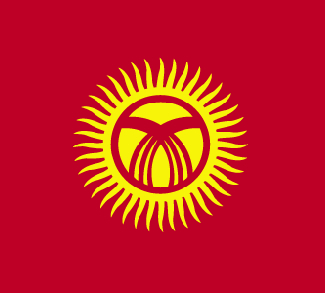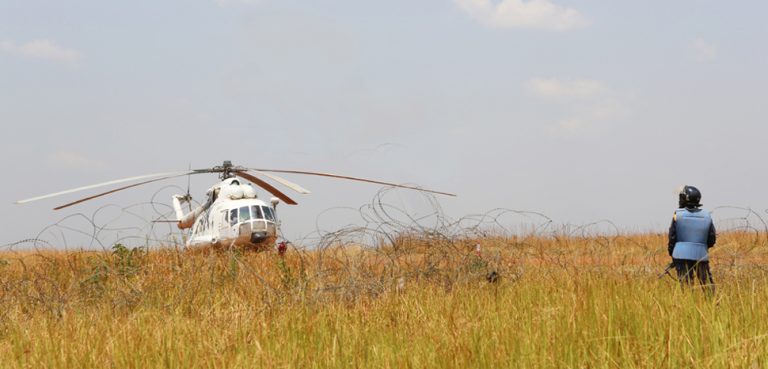Immediately after the 2023 death of Yevgeny Prigozhin in a suspicious plane crash, Russia’s Wagner Group, a leading private military company (PMC), faced fragmentation without his leadership. Even before Prigozhin’s death, Russian Defence Minister Sergei Shoigu had been pushing for the group to be absorbed into the Russian army. Wagner co-founder Dmitry Utkin died in the same plane crash as Prigozhin, along with most of the rest of the group’s directors. Once the leadership was out of the picture, pressure from the Ministry of Defense increased.
Shortly after his father’s death, twenty-five-year-old Pavel Prigozhin took over the reins of his father’s company, but with limited legitimacy. Little is known of Pavel’s childhood or teenage years, except that he was pampered and traveled on private yachts and jets. He fought in Syria alongside the Wagner Group, earning the organization’s “Black Cross” for outstanding military service. He also fought in Ukraine, where allegedly, his social media posts gave away his position, leading to his unit being bombed. Western sanctions have been extended to the children of Yevgeny Prigozhin, making it nearly impossible for Pavel to travel internationally.
Pavel’s age and lack of his father’s skills were ultimately his downfall, and most analysts believed the Kremlin would cut a deal to completely remove him from the picture, allowing Pavel to continue to earn money with the many other companies his father left him in a multibillion-dollar empire. Under Pavel’s leadership, Wagner began recruiting again, but then suddenly stopped. By October or November of 2023, Pavel was no longer leading the Wagner Group. There’s no official confirmation on Pavel’s whereabouts or what happened to him. He may have been sidelined or removed from power struggles within Russia. It’s also possible he’s involved with the PMCs in a less public role. Information about the Wagner Group and its leadership is often opaque and shrouded in secrecy.
While Pavel’s role, and even if he is still alive, remain unknown, it is known that Wagner’s commercial and military interests have been divided between Russia’s numerous intelligence services and Putin’s allies. Parts of the Wagner Group may have been absorbed into Rosgvardia, also known as the Federal Service of the National Guard of the Russian Federation. However, command over the largest part of Wagner’s overseas operations has been assumed by General Andrei Averyanov, a high-ranking officer in Russia’s military intelligence (GRU). General Andrey Averyanov, the former leader of a targeted assassination group, rose to international infamy for the failed poisoning of Russian dissident-in-exile, Sergei Skripal in Salisbury, UK in 2018.
The Defense Ministry established a number of other private military companies (PMCs) to recruit former Wagner men for operations in Africa or the Middle East. A PMC called Redut, established in 2008, has been fighting in Ukraine, while another PMC, Convoy, was established in Russian-occupied Crimea in 2022. Wagner’s Ukrainian operations now come under the name of the Volunteer Corps, while other arms-length, covert operations have been incorporated into the Expeditionary Corps. Effectively, the multibillion-dollar PMC business has been taken over by the Kremlin, with the Expeditionary Corps dubbed “Wagner 2.0.”
Russia’s strategy in using the PMCs is to undermine U.S. power and increase Moscow’s influence while maintaining plausible deniability. They provide security for foreign leaders while also offering training for their troops and sometimes engaging in ground combat, providing combat support, or conducting special operations. The PMCs aid Moscow’s foreign policy objectives by carrying out military operations, projecting Russia’s power, furthering Moscow’s political influence, gathering intelligence, and generating revenue. In Mali and Sudan, the Wagner Group was instrumental in securing gold and diamond mines, ensuring that certain local military leaders continue to benefit from them, while also transporting precious metals and stones back to the Kremlin.
The Wagner Group was active in Libya from 2018. Russian PMCs are also fighting in Syria and Ukraine, and possibly in as many as 30 countries in total. Wagner had been propping up regimes across Africa, as well as controlling mineral extraction activity, namely in gold. Operations in Africa are continuing with mercenaries fulfilling existing contracts. The Kremlin is offering a “regime survival package” to governments in Africa in exchange for access to natural resources. The Russian government is also working to change mining laws in West Africa, attempting to unseat Western companies.
Now, those operations in Africa are continuing under the Africa Corps. Russia is negotiating with the Central African Republic to open a new military base there. The group is also active in Libya, Mali, Sudan, and Burkina Faso. The original plan was to recruit and place 40,000 Russian fighters across Africa. This target was reduced to 20,000, but by the end of 2023, even this reduced target had not been fulfilled. Consequently, the empty billets are being filled with recruits from Africa. Particularly in the Central African Republic (CAR), former fighters are finding that they are unemployable after a UN ceasefire. So, they are taking jobs with the Russian PMCs.
Another region where Russian PMCs are active is the Sahel, encompassing countries bordering the southern edge of the Sahara Desert. It has become known as the ‘coup belt’ due to a recent surge in military takeovers. Since 2020, at least five successful coups have plagued the region, including two in Mali, two in Burkina Faso, and one in Niger. The three nations withdrew from the regional bloc – The Economic Community of West African States (ECOWAS) – and created their own “Alliance of Sahel States.”
These coups all shared a similar theme: the new military leaders distanced themselves from Western powers. French troops, deployed for years to combat jihadist activity from groups like the Islamic State in the Greater Sahara (ISGS) and Jama’at Nusrat al-Islam wal-Muslimin (JNIM), were expelled or faced pressure to leave. Additionally, the juntas want the US military out of the region. It’s important to note that public dissatisfaction with government corruption and inability to address security concerns, including the rise of these terrorist groups, were also significant factors behind the coups, not just Western influence.
The United States is struggling to maintain its foothold in Africa’s Coup Belt, particularly after French troops were expelled from Mali and Burkina Faso. Washington seeks to prevent Russian PMCs from filling the security void. However, Moscow holds a certain appeal for the region’s newly established military juntas. Unlike Western powers, Russia doesn’t pressure them on human rights issues or democratic reforms. Additionally, the U.S. operates within the constraints of the international rules-based order, limiting its flexibility in negotiations. In contrast, Russia prioritizes its own interests and operates with less transparency, allowing it to deny involvement with PMCs. This opacity gives Russia an advantage, allowing them to cultivate influence in the region without directly committing troops.
The U.S. has several reasons for wanting to remain in the region. First, reports suggest the effectiveness of Russian PMCs in combating terrorism is debatable. Second, the U.S. is concerned about the potential for a detrimental economic impact on these already poverty-stricken countries. Cutting ties with Europe and facing potential sanctions could leave them economically dependent on Russia, with most of the wealth and benefits concentrated among the military rulers.
Furthermore, the coups have resulted in a curtailment of human rights and basic freedoms, with no expectation of full restoration. Unlike Western partners who would pressure for democratic reforms and respect for human rights, Russian PMCs like the Wagner Group are unlikely to exert any such influence. This lack of pressure is likely to further erode the quality of life for average citizens in these already struggling nations.
The presence of Russian PMCs is expected to expand in Africa, and with it, Russia’s influence. U.S. influence will decline unless Washington finds some way to dislodge the Russian PMCs. And unfortunately, citizens of these African countries will see a deterioration in their quality of life, standard of living, and general safety.




